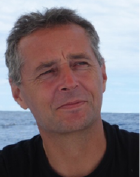Projet SABLE
A Seascape Genomics Approach to Improve Coral Reefs Conservation Strategies Against Bleaching
In future, conservation efforts to preserve coral reefs will increasingly depend on the adaptation capabilities of corals, an aspect rarely addressed in the past. This project aims at promoting a conservation strategy that accounts for the adaptive potential of corals against bleaching. To do so, we elaborate a Seascape Genomics methodology to assess conservation priorities and apply it to the UNESCO world heritage reef system of New Caledonia. This genomics-based tool will be used to inform local authorities on conservation priorities and the methodology transferred to any reef system around the world.
SABLE project is a joint project between ENTROPIE lab (at the Institute of Research for Development, New Caledonia), and the LASIG lab (at the Ecole Polytechnique Federale (Lausanne, Switzerland).
Videos :
Publications :
O. Selmoni, G. Lecelllier, H. Magalon, L. Vigliola, N. Oury, F. Benzoni, C. Peignon, S. Joost and V. Berteaux-Lecellier. (2021) Seascape genomics reveals candidate molecular targets of heat stress adaptation in three coral species. Mol. Ecol. DOI: https://doi.org/10.1111/mec.15857
O Selmoni, G Lecellier, L Vigliola, V Berteaux-Lecellier and Stéphane Joost. (2020) Coral cover surveys corroborate predictions on reef adaptive potential to thermal stress. Sci. Reports. 10 (1), DOI: 10.1038/s41598-020-76604-2 ⟨hal-03002781⟩
Participants Entropie
 Dr. Gaël Lecellier (UMR ENTROPIE)
Dr. Gaël Lecellier (UMR ENTROPIE)
PARTICIPANTS HORS ENTROPIE
 Dr. Stéphane Joost, senior researcher and teaching associate at LASIG, EPFL.
Dr. Stéphane Joost, senior researcher and teaching associate at LASIG, EPFL.
 Oliver
Selmoni, PhD student at Laboratory of Geographic Information Systems
(LASIG), École Polytechnique Fédérale de Lausanne (EPFL).
Oliver
Selmoni, PhD student at Laboratory of Geographic Information Systems
(LASIG), École Polytechnique Fédérale de Lausanne (EPFL).
